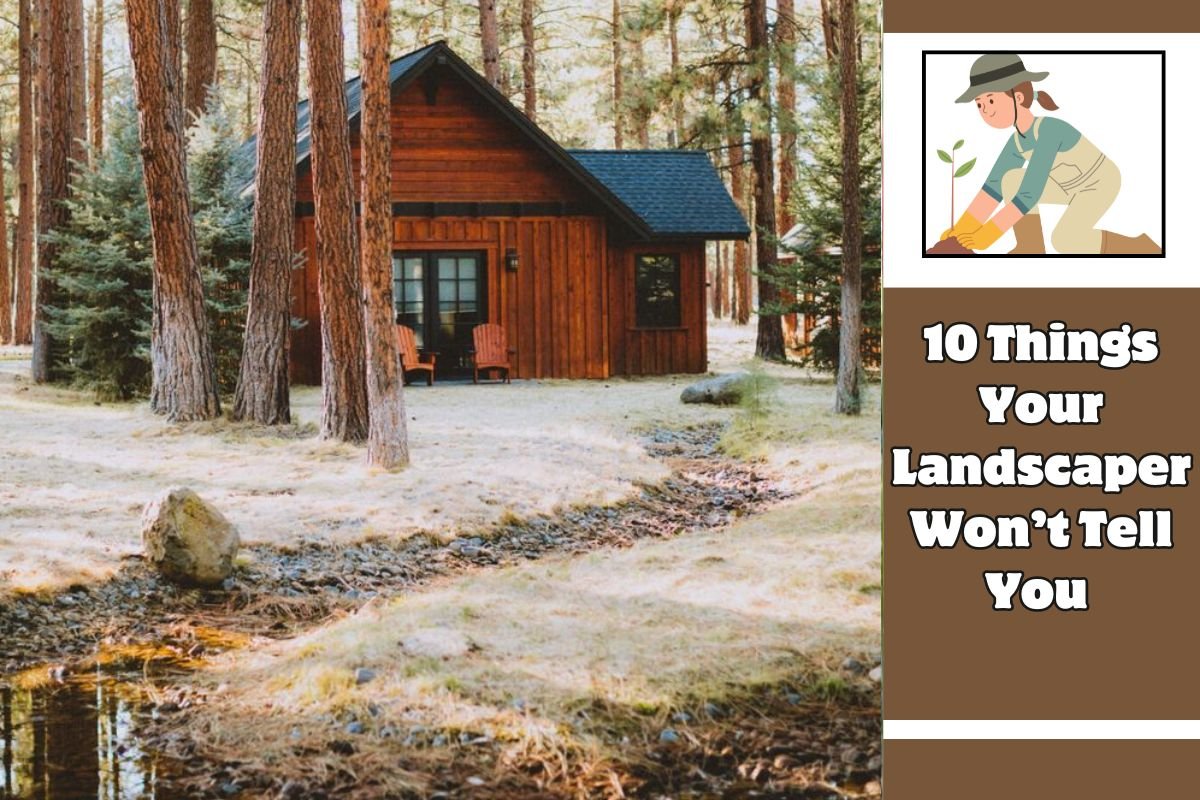10 Things Your Landscaper Won’t Tell You : When you set out to make your outside area more beautiful, there are some insider tips that landscapers may not be willing to share. Here are seven things your landscaper might not tell you, whether it’s about saving money, optimizing efficiency, or just protecting trade secrets:
10 Things Your Landscaper Won’t Tell You
1. Seasonal Overpricing:
When demand is high during peak seasons, landscapers may charge more. Plan your landscaping tasks for off-peak hours, when prices are probably more affordable, to avoid this.
2. Shortcut Solutions:
Landscapers occasionally provide quick remedies that solve problems right away without addressing the underlying causes of problems. For example, using mulch to conceal soil issues rather than appropriately correcting the soil. Make sure you request long-term fixes that support the sustainability and well-being of your outdoor area.
3. Hidden Costs:
Even though you might get an estimate at first for your landscaping project, keep in mind that as the job gets done, more fees might come up. Unexpected problems beneath the surface, design modifications, and the need for more materials can all result in greater costs. To prevent unpleasant surprises later, ask for a thorough explanation of any possible additional expenses up front.
4. Maintenance Requirements:
It is possible that landscapers may withhold information about the upkeep requirements of plants or other elements they install. For optimal growth, certain plants can need regular trimming, precise watering schedules, or soil additives. To make sure you can dedicate yourself to the care, find out in advance what kind of maintenance your landscaping features demand.
5. Preference for Profitable Plants:
Rather than choosing the plants or materials that are suitable for your particular environment, landscapers may have preferences for particular plants or materials based on their profitability. This may lead to the installation of plants that are not suitable for your soil type or environment. Ask for ideas not so much for what makes the most money as for what will grow in your particular area.
6. Limited Warranty Coverage:
Even although your landscaper may provide a warranty for their services, it’s important to review the details. Certain warranties might only cover a portion of the project or have stringent requirements that need to be fulfilled in order for coverage to begin. Recognize the conditions of the warranty to make sure you have enough protection.
7. Subcontractor Usage:
Bigger landscaping firms could, without telling you, subcontract some of the work to other contractors. This may have an effect on the output’s consistency and quality. Make sure the people working on your project are qualified and experienced by making sure they know who they will be working with.
8. Environmental Impact:
Environmental sustainability is not given priority in all landscaping techniques. Certain landscapers might apply fertilizers, herbicides, or insecticides without considering the possible effects on the environment. Ask for environmentally friendly substitutes and methods that reduce damage to the natural world and wildlife.
9. Limited Design Options:
When working with clients, landscapers could have a go-to design aesthetic or distinctive style. This could not, however, fit your idea of how you want your outside area to look. Make it clear what kind of design you like, and request a range of possibilities.
10. DIY Opportunities:
Even while working with a professional landscaper can save you time and effort, there might be some tasks you can do on your own to cut costs. Due to the potential loss of revenue, landscapers may not always support do-it-yourself projects. Talk about the jobs that you could realistically do yourself to cut expenses.
Conclusion
Although landscapers are knowledgeable experts who can completely change your outside area, it’s important to understand the hidden costs and potential hazards associated with landscaping. You can make sure that your landscaping job fulfills your needs and beyond your expectations by being knowledgeable, asking questions, and making clear expectations.
